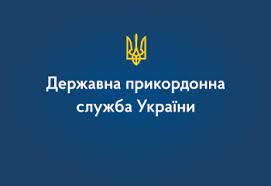
Polish farmers plan to allow trucks to pass through the checkpoint “Rawa-Russkaya – Grebennoye” to enter Poland, except for those moving goods of groups 1-24 of the UKTVED (agricultural products).
As reported in the Telegram channel of the State Border Service of Ukraine on Saturday, the preliminary movement of trucks should begin at 8:00 on April 21.
Earlier it was reported that the movement of trucks at the checkpoints “Shegini-Medika” and “Krakowiec-Korczowa” on the Polish-Ukrainian border was resumed on Saturday morning after Polish farmers ended the protest action in front of them. The registration and passage of cargo vehicles across the border in the two directions is carried out as usual.
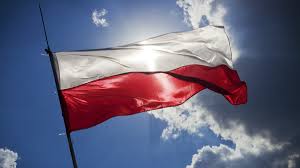
It is advisable for Poland to maintain the blockade on Ukrainian grain imports, but transit should be allowed when transshipment capacities are free in Polish ports, President of the Grain and Feed Chamber of Poland Monika Pątkowska said in an interview with farmer.pl.
“Today it would be better if the blockade of grain imports is maintained, and when it comes to transit, we could implement it to some extent and thus help Ukraine when we have free handling capacities in Polish ports,” she said.
Pętkowska noted that Polish ports were not 100% loaded in the first quarter of 2024.
“We have to conclude that our port infrastructure, but also the railroad infrastructure is inefficient. Now is the right time to expand it. I believe that we slept through the last two years in this context. Romania has received funds from the European Union and is expanding its infrastructure, while Poland has not done it so far,” the public figure emphasized.
She is sure that Poland should show both Ukraine and the international community that it wants to help effectively but, on the other hand, firmly protects the interests of the Polish farmer. These two goals, in her opinion, should be combined.
“The sooner we come to a mutual understanding, the sooner we develop mechanisms, the less complicated will be the atmosphere that may hinder our broader cooperation not only with Ukraine, but also in the European arena,” summarized the president of the Polish Grain Chamber.

The Polish Agricultural and Food Products Quality Inspectorate (IJHARS) in Poznan has issued a decision to ban the circulation of a batch of ice cream in cones weighing 7.13 tons imported from Ukraine.
The decision was made due to incorrect labeling, the inspectorate reported on social media platform X on Monday.
The decision was immediately enforced.
As reported, on April 12, the IJHARS banned access to the Polish market for two batches of sponge cakes weighing 10.55 thousand tons imported from Ukraine, and on April 9, three batches of Ukrainian bagels weighing 5.34 tons. Earlier, three batches of Ukrainian ice cream weighing 8.48 tons were seized in Lublin because it was defrosted.
In early April, the Polish Trade Inspectorate announced the largest fine in its history of 1.5 million zlotys (about $380 thousand) imposed on an importing company for importing 11.5 thousand tons of technical rapeseed and feed wheat from Ukraine as counterfeit goods for further use as food. In addition, a decision was made to ban the import of 57.66 tons of tomato paste from Ukraine due to the presence of mold.
In March, IJHARS Chief Inspector Przemysław Rzodkiewicz said that over the past year, 1.4% of the batches of products from Ukraine inspected by the commission at the border were rejected.
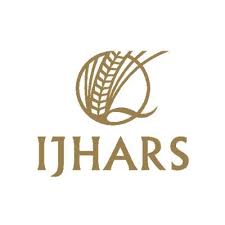
The Polish Trade Inspectorate for Quality of Agricultural and Food Products (IJHARS) in Rzeszów has issued a decision to ban the circulation on the Polish market of two batches of biscuit cakes with a total weight of 10.55 thousand tons imported from Ukraine.
As the inspectorate said in a post on social network X on Monday, the decision was made due to incorrect labeling.
The decision was immediately enforced.
As reported, the IJHARS on April 9 in Rzeszów issued a decision to ban the circulation on the Polish market of three batches of baranques with a total weight of 5.34 thousand tons imported from Ukraine.
A few days earlier in Lublin, three batches of ice cream with a total weight of 8.48 tons imported from Ukraine were withdrawn from the Polish market due to defrosting.
In early April, the Polish Trade Inspectorate announced the largest fine in its history of 1.5 million zlotys (about $380 thousand) imposed on an importing company for importing 11.5 thousand tons of technical rapeseed and fodder wheat to the Polish market from Ukraine as counterfeit due to their subsequent use as food. In addition, decisions were taken to prohibit the import of 57.66 tons of tomato paste from Ukraine due to the presence of mold.
IJHARS chief inspector Przemysław Rzodkiewicz said in March that over the past year, 1.4% of batches of products from Ukraine inspected by the commission at the border were rejected.
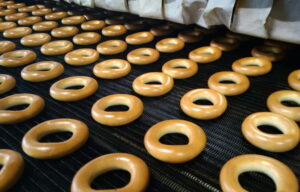
The Polish Agricultural and Food Products Quality Inspectorate (IJHARS) in Rzeszów has issued a decision to ban three batches of bagels with a total weight of 5.34 thousand tons imported from Ukraine from circulation on the Polish market.
According to the inspectorate’s post on Monday on the social network X, the decision was made due to the low fat content and high sugar content of the bagels.
The decision was immediately implemented.
As reported, on April 5, IJHARS in Lublin withdrew three batches of ice cream with a total weight of 8.48 tons imported from Ukraine from the Polish market due to defrosting.
Earlier, the Polish Trade Inspectorate announced the largest fine in its history of 1.5 million zlotys (about $380 thousand) imposed on an importing company for importing 11.5 thousand tons of technical rapeseed and feed wheat from Ukraine as counterfeit goods for further use as food. In addition, a decision was made to ban the import of 57.66 tons of tomato paste from Ukraine due to the presence of mold.
In March, IJHARS Chief Inspector Przemysław Rzodkiewicz said that over the past year, 1.4% of the batches of products from Ukraine inspected by the commission at the border were rejected.
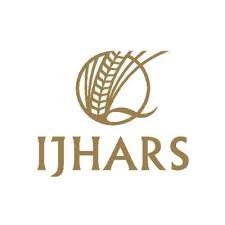
The Polish Inspectorate for Agriculture and Food Quality (IJHARS) in Lublin has decided to ban the circulation of three batches of ice cream with a total weight of 8.48 tons imported from Ukraine due to defrosting.
The decision was immediately implemented, the inspectorate said in a post on the social media platform X on Sunday.
It is also noted that the day before IJHARS in Poznan decided to ban from the Polish market another batch of ice cream imported from Ukraine, totaling 1.44 tons, due to the lack of declaration of sweetener (aspartame) in the composition.
Earlier this week, the Polish Trade Inspectorate announced the largest ever fine of 1.5 million zlotys (about $380,000) imposed on an importing company for importing 11,500 tons of technical rapeseed and feed wheat from Ukraine as counterfeit products for further use in the form of food products.
In addition, it was decided to ban the import of 57.66 thousand tons of tomato paste from Ukraine due to the presence of mold.
A week earlier, IJHARS chief inspector Przemyslaw Rjodkiewicz said that 1.4% of batches of products from Ukraine, which the commission checked at the border, were rejected last year.